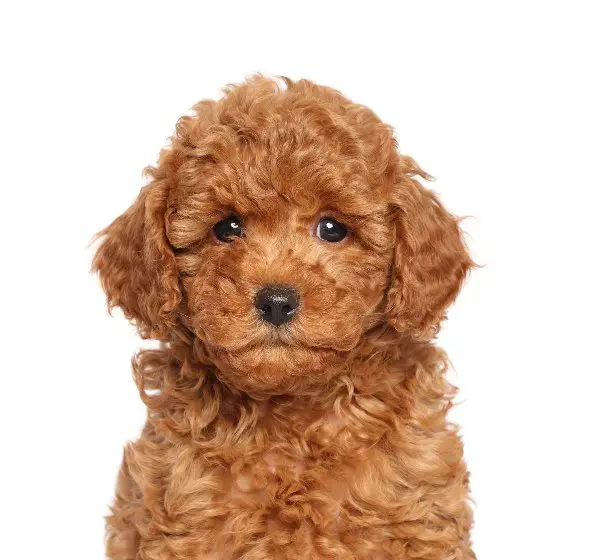
Poodle Breed Profile
As clever as it is elegant, the Poodle is well known for its famous trim often seen at dog shows, however there’s more variety and wonder in this breed than many people realise.
- Active
- 13-15 Years
- Intelligent
Jump to Poodle information
Whats the Poodle's history and background?
Poodles are a long time favourite among dog owners and it’s easy to see why. Exceptional intelligence makes them easy to train to command, they’re naturally active and athletic dogs so are great companions for walks, plus their coat barely sheds, making them great for those who like a hair free home. The Poodle comes in three distinct sizes, the Standard Poodle, Miniature Poodle and Toy Poodle.
The Poodle can trace its history to the 18th Century, although the exact origin of the breed we see today is a matter of contention, whether it be the Middle East, Asia or Europe. Many cynologists note that it was likely Portuguese traders who brought the ancestor of the Poodle back to Europe, a likely predecessor breed being the Portuguese Water Dog. Even within Europe there is no official consensus as to where the breed was officially developed. Germany appears to have the strongest claim, waterfowlers of the middle ages using a water dog called a “Pudel”, from the Low German “puddeln” which means to splash. Opposing this is the French story of the “Caniche”, the French name for the Poodle, which translates as “duck dog”.
From their emergence as working, water dogs in Europe, the Poodle soon picked up popularity for their intelligence and eagerness to please, which is when circus entertainers of the time began incorporating them into their shows to perform trick. This is where the “Miniature” Poodle was developed, their slightly smaller size bering better suited to the need of the circus. The breed’s popularity continued to grow with time, with more demand coming from dog owners for a smaller, companion sized version of the dog. It was during this time in the early 20th century that the “Toy” Poodle was developed, a hand sized version of the once large working dog. Believe it or not, these Toy Poodles were often kept as hand warmers, siting within people sleeves, which is why the Toy Poodle is sometimes referred to as the “Sleeve Poodle”.
What's the Poodle's Behaviour & Personality like?
- Being highly intelligent and a former working breed, the Poodles need both mental and physical stimulation each day to be happy.
- Poodles are great within families, as long as socialised with family in a healthy way, as they thrive in social environments although they can be demanding of attention sometimes.
- This breed is a great guard dog as they do not take kindly to strangers in the home or near their owners, for this reason its important to regularly socialise your Poodle with other dogs and people to discourage excess barking or seeing others as constant threat.
- Being highly sociable dogs, its important not to leave your Poodle alone for long periods of time, particularly the smaller versions, as they can develop separation anxiety, leading to excessive barking and destructive behaviour in the home.
How to groom a Poodle
- It would be impossible to write about the Poodle without mentioning grooming, one of the aspects of the Poodle that has made them internationally recognised.
- Often cited as being hypoallergenic, the Poodle has a coat that sheds a minimal amount in comparison to other breeds. This is for two main reasons, one, the longer life cycles of hair follicles means its sheds less often, and secondly, their tight curls mean that any hair that does fall out is caught in those curls instead of ending up on the carpet.
- For these reasons, Poodles are high maintenance in the grooming department. It’s important to regularly brush through the coat of your Poodle, daily to every other day when they are puppies, and around once to twice a week in adulthood. This will prevent their hair matting and causing dermatological infections.
- You’ll need to wipe your Poodle’s ears and eyes regularly to avoid infection. The breed’s long, hairy ears can easily trap dirt and debris, and their eyes are prone to staining if not regularly wiped for excess moisture and discharge build up.
- Poodle’s will benefit from regular trips to professional dog groomers to keep that coat in check, around 3-4 times a year depending on your dog’s needs.
How much exercise does a Poodle need?
- As former working dogs, Poodles need to be walked at least twice a day with at least an hour of exercise a day for a Standard size Poodle, the Miniature and Toy Variation will need slightly less, although these dogs are still athletic in their own right so don’t hold them back.
- Poodles are exceptionally intelligent dogs that also require a degree on mental stimulation to accompany their daily physical exercise, incorporate retrieval games and nature exploration in order to tap into their working dog DNA.
- With high energy and intelligence, ensuring your Poodle gets enough mental and physical stimulation is crucial to having a happy and healthy dog, destructive behaviour and barking can surface when these needs are not met.



What training does a Poodle need?
- Poodles are highly intelligent dogs with lots of energy that must be trained from a young age to avoid any unwanted or unruly habits forming, however the developmental needs of your Poodle may differ slightly depending on which variation you have.
- This breed has the intelligence and eagerness to please that make them easy dogs to train, especially for first time dog owners.
- Poodles thrive on positive reinforcements and can be sensitive dogs that form close bonds with their owners. Additionally, patience is needed with Poodles as they often try to outsmart their owners and can become bored if they don’t get sufficient stimulation.
What is the average lifespan of a Poodle?
- The average lifespan of a Poodle is dependent on its size. Standard sized Poodles can live up to 13 years, whereas the Miniature and Toy variations can live a little longer, up to 15 years. Ensure your Poodle receives a healthy and balanced diet with plenty of exercise in order to live a long and happy life.
What are common health issues for a Poodle?
- Poodles are generally a fairly healthy breed due to their athletic, working dog heritage, however there are unfortunately a few issues to key an out for with your dog.
- Hip dysplasia is relatively common in the breed, a painful joint issue that is often hereditary but can be exacerbated by lifestyle habits. It occurs when the hip joint doesn’t form correctly.
- Poodles are also known to suffer from canine epilepsy, a distressing neurological condition that exhibits symptoms such as uncontrolled drooling, sudden movements and confusion.
- Dog bloat is one of the more common conditions suffered by Poodles, and other large breasted dogs. Bloat occurs when the stomach twists internally, trapping gas, and can be fatal if not treated. The condition is also known as gastric dilatation volvulus and usually requires surgery to treat.
- As with all breeds, it’s important to get your Poodle from well established and trusted breeders, using dog DNA testing to identify any health issues.

